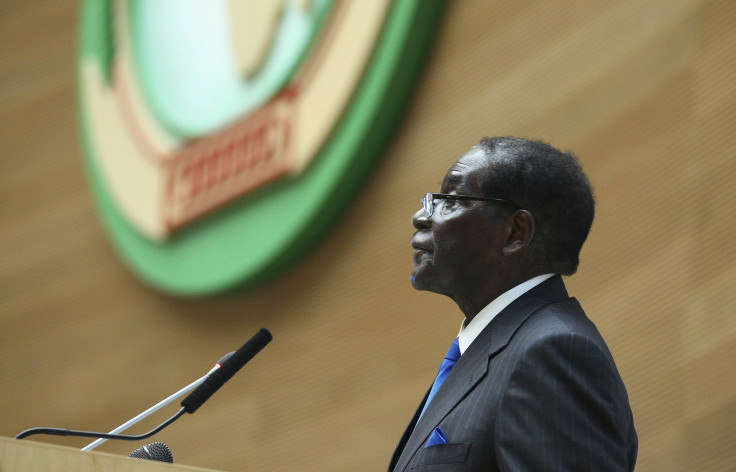Zimbabwe Sanctions: European Union Renews Mugabe Travel Ban After Offering Development Aid

The European Union has decided to keep its sanctions on Zimbabwe in place, despite resuming aid to the country this week. The 28-member EU bloc announced Friday that sanctions including a travel ban and a freeze on the assets of President Robert Mugabe and his wife have been renewed for another year, Reuters reported.
EU governments made clear they were not yet convinced that Mugabe’s record of human rights abuses and electoral fraud had improved enough to merit a lifting of sanctions, according to a notice in the EU’s Official Journal, Reuters said. The bloc has imposed sanctions on the country since 2002, when Mugabe’s Zanu-PF government was linked to widespread abuses around an election, including intimidation and violence against political opponents as well as a crackdown on freedom of expression. While some of these sanctions, including asset freezes on other prominent Zimbabwean officials, have been eased in recent years to promote democratic reform, an arms embargo has remained in place along with travel bans on Mugabe and his wife, Grace.
The decision to continue sanctions comes just days after the EU offered a 234 million-euro aid package to Zimbabwe, the first time the bloc has offered the African state financial aid since sanctions were imposed. The aid, which is intended to boost agricultural development, health services and institutional building, will be channeled through the United Nations Development Program and the World Bank, the Guardian reported. However, Zimbabwe’s government could eventually receive direct budgetary assistance if it meets conditions around good governance and the rule of law.
Zimbabwean officials had been pressing for the EU to lift its sanctions on Mugabe, warning that they impeded the development of relations between the government and the EU. "For as long as sanctions remain, dialogue will unnecessarily remain contentious and might retard progress toward normalization of relations," Zimbabwe's Finance Minister Patrick Chinamasa told Deutsche Welle earlier this week. "The European Union is saying to us: 'Ministers and others, you can visit us, but do not bring your father.' That is not how relations should be conducted."
© Copyright IBTimes 2024. All rights reserved.






















